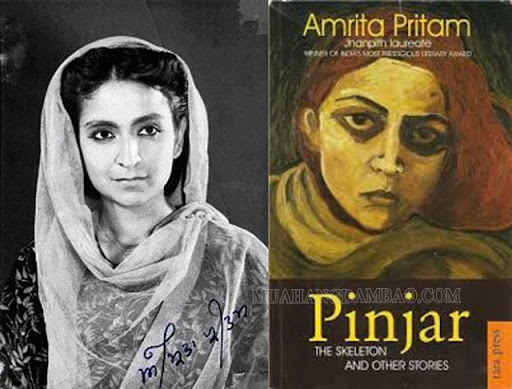
Known as the most important voice for the women in Punjabi literature, in 1956, she became the first woman to win the Sahitya Akademi Award for her magnum opus, a long poem, Sunehe (Messages), later she received the Bhartiya Jnanpith, one of India's highest literary awards, in 1982 for Kagaz Te Canvas (The Paper and the Canvas). When the former British India was partitioned into the independent states of India and Pakistan in 1947, she migrated from Lahore, to India, though she remained equally popular in Pakistan throughout her life, as compared to her contemporaries like Mohan Singh and Shiv Kumar Batalvi. As a novelist her most noted work was Pinjar (The Skeleton) (1950), in which she created her memorable character, Puro, an epitome of violence against women, loss of humanity and ultimate surrender to existential fate the novel was made into an award-winning film, Pinjar in 2003. She is most remembered for her poignant poem, Aj Aakhaan Waris Shah Nu (Today I invoke Waris Shah – "Ode to Waris Shah"), an elegy to the 18th-century Punjabi poet, an expression of her anguish over massacres during the partition of India.

Amrita Pritam born as Amrita Kaur was a Punjabi writer and poet, considered the first prominent woman Punjabi poet, novelist, and essayist, and the leading 20th-century poet of the Punjabi language, who is equally loved on both the sides of the India-Pakistan border, with a career spanning over six decades, she produced over 100 books, of poetry, fiction, biographies, essays, a collection of Punjabi folk songs and an autobiography that were translated into several Indian and foreign languages.


 0 kommentar(er)
0 kommentar(er)
